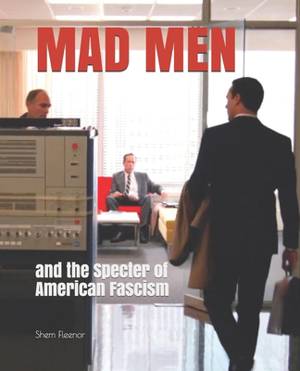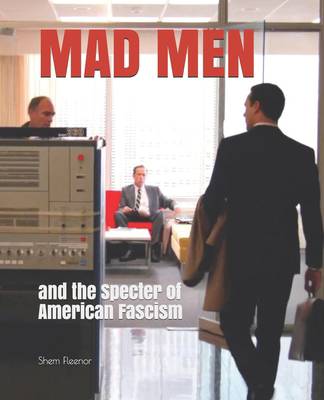
- Retrait gratuit dans votre magasin Club
- 7.000.000 titres dans notre catalogue
- Payer en toute sécurité
- Toujours un magasin près de chez vous
- Retrait gratuit dans votre magasin Club
- 7.000.000 titres dans notre catalogue
- Payer en toute sécurité
- Toujours un magasin près de chez vous
Description
AMC's Mad Men is a cultural phenomenon. The groundbreaking drama about the inner workings of a 1960s Madison Avenue advertising agency and the inner lives of the company's employees featured ninety-two episodes in seven seasons between 2007 - 2015 and was awarded a record four consecutive Emmy Awards for Outstanding Drama Series. Mad Men, is, also, Shem Fleenor argues, as much about executive producer Matthew Weiner's experience growing up in Cold War America and his historical memory of the nation's collective identity, which was profoundly shaped by consumerist conformity, the advertising industry, a revamped Christian Evangelism, and militarism. Mad Men also, Fleenor argues, depicts a longtime duplicity inherent in American identity between liberty and equality-for-all in epic tension with the United States as a bastion of capitalism. The mangled duality between freedom and authoritarianism embedded in America's collective identity in the postwar era is thus evident throughout the show. Chapter one uses Mad Men as a lens with which to examine racism in postwar American society. Chapter two examines sexism, misogyny, and second wave feminism in postwar American society. Chapter three features Cold War American opposition to Marxism and the subsequent perpetuation of the American social system (including class, racial and gender). Chapter four examines the heightened violence associated with the Vietnam Era in American history. Chapter five explores American militarism and the lecherous fetish for youth in postwar American consumer culture. Chapter six examines the United States at the height of its imperial powers, paying particularly close attention to the soft power of consumerism. Chapter seven explores the anxiety associated with death, and the conflation of religion and consumerism as tandem utopias vying for Americans' hearts and minds at a time in human history when nuclear annihilation seemed a very real possibility. Chapter eight examines the character, Michael Ginsberg, as the personification of Allen Ginsberg's poem, Howl, which, like Mad Men, alludes to postwar American consumerism and militarism exhibiting myriad elements of technocratic fascism. The final chapter also explores the paradox of trying to create revolutionary high art made for the masses by elaborating Theodor Adorno and Max Horkheimer's concept of "the culture industry." The study concludes with an epilogue that elaborates that Mad Men is as much about the Digital Age and anxiety associated with notions of the decline of the American Empire in the twenty-first century as it is about the Space Age, Vietnam Era, and the zenith of the American empire in the 1960s.
Spécifications
Parties prenantes
- Auteur(s) :
- Editeur:
Contenu
- Nombre de pages :
- 332
- Langue:
- Anglais
Caractéristiques
- EAN:
- 9781951231033
- Date de parution :
- 07-10-19
- Format:
- Livre broché
- Format numérique:
- Trade paperback (VS)
- Dimensions :
- 191 mm x 235 mm
- Poids :
- 571 g







